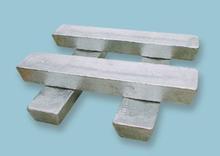 As China continues to show signs of economic stabilization, there have been more positive reports on trade performance. However, recent data from the Shanxi Provincial Department of Commerce reveals a different story for the northern province. In the first 11 months of 2012, Shanxi’s total import and export value reached $13.07 billion, marking a year-on-year decline of 1.1%. This downturn is largely attributed to weak demand in key commodity sectors such as coke, iron ore, and coal.
Shanxi, known as the world's largest coke production base, has seen a sharp drop in its exports. From January to November, coke exports fell by 75.6% to 388,000 tons, with export revenue dropping by 75.3% to $184 million. The sector, once a major driver of the region’s trade, now faces significant challenges due to global economic uncertainty.
The decline isn’t limited to coke. Coal exports also fell by 31.9%, while stainless steel and magnesium exports declined by 17.4% and 45.8%, respectively. These four key commodities—coke, coal, stainless steel, and magnesium—accounted for $1.34 billion in exports during the period, down 42% compared to the same time last year. Their share of total exports dropped from 47.6% to just 23%.
Industry experts point to the slow recovery of major export markets like the U.S. and Europe as a primary factor behind the slump. With these economies still struggling to regain momentum, demand for Chinese industrial goods has weakened significantly.
On the import side, the situation is equally challenging. A steep decline in mineral product imports—down 31% year-on-year—has played a major role in the overall drop in imports. The decrease amounted to $1.523 billion, representing 136.7% of the total import reduction and contributing to an 18.2% decline in the province’s overall import volume.
As Shanxi tries to navigate this difficult period, the need for diversification and market expansion becomes increasingly clear. The province must look beyond traditional industries and explore new trade routes and products to restore growth and stability in its foreign trade.
As China continues to show signs of economic stabilization, there have been more positive reports on trade performance. However, recent data from the Shanxi Provincial Department of Commerce reveals a different story for the northern province. In the first 11 months of 2012, Shanxi’s total import and export value reached $13.07 billion, marking a year-on-year decline of 1.1%. This downturn is largely attributed to weak demand in key commodity sectors such as coke, iron ore, and coal.
Shanxi, known as the world's largest coke production base, has seen a sharp drop in its exports. From January to November, coke exports fell by 75.6% to 388,000 tons, with export revenue dropping by 75.3% to $184 million. The sector, once a major driver of the region’s trade, now faces significant challenges due to global economic uncertainty.
The decline isn’t limited to coke. Coal exports also fell by 31.9%, while stainless steel and magnesium exports declined by 17.4% and 45.8%, respectively. These four key commodities—coke, coal, stainless steel, and magnesium—accounted for $1.34 billion in exports during the period, down 42% compared to the same time last year. Their share of total exports dropped from 47.6% to just 23%.
Industry experts point to the slow recovery of major export markets like the U.S. and Europe as a primary factor behind the slump. With these economies still struggling to regain momentum, demand for Chinese industrial goods has weakened significantly.
On the import side, the situation is equally challenging. A steep decline in mineral product imports—down 31% year-on-year—has played a major role in the overall drop in imports. The decrease amounted to $1.523 billion, representing 136.7% of the total import reduction and contributing to an 18.2% decline in the province’s overall import volume.
As Shanxi tries to navigate this difficult period, the need for diversification and market expansion becomes increasingly clear. The province must look beyond traditional industries and explore new trade routes and products to restore growth and stability in its foreign trade.Continuous basalt fiber (abbr. CBF) is a continuous fiber made of natural volcanic extrusive rock as the exclusive raw material. After melting at 1450-1500℃, continuous basalt fiber is manufactured by special technology. Basalt fiber is high performance non-metallic inorganic fiber, which has unique excellent properties in tensile strength, high and low temperature resistance, corrosion resistance, heat insulation, sound insulation, flame retardant, chemical resistance and electrical insulation.
basalt fiber,CBF fiber; short cut basalt fiber,basalt fiber to cement concrete; basalt fiber for mortar
Shanghai Na Long Tech Co., Ltd , https://www.na-long.com